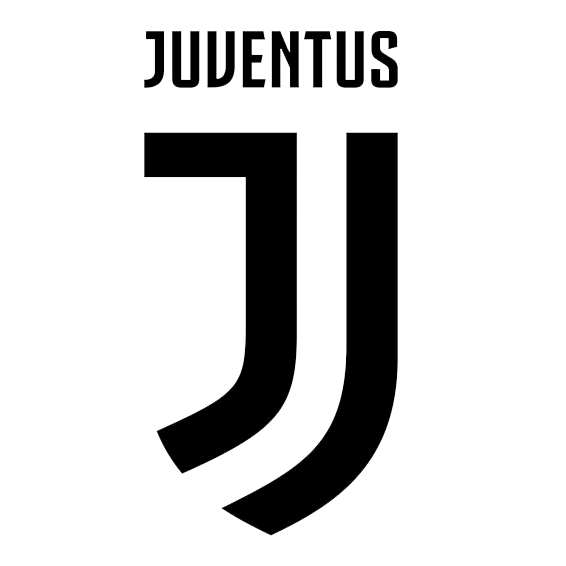
Cancelled US La Liga Game a ‘Lost Opportunity’ – Tebas Laments Miami Match Fallout
When the announcement came that Barcelona and Villarreal’s La Liga clash in Miami had been officially cancelled, the sense of disappointment around Spanish football was palpable. For Javier Tebas, the outspoken president of La Liga, it wasn’t just a setback — it was a missed chance to globalise the league’s vision.
The fixture, originally scheduled for 20 December at the Hard Rock Stadium, was meant to mark a historic milestone — the first European top-flight league game ever to be staged in the United States. Instead, after weeks of pushback from players, clubs, and sections of Spain’s football establishment, the plan collapsed just as quickly as it had emerged.
La Liga’s American Dream Falls Apart
The original idea, approved by the Spanish football federation (RFEF) back in August, was seen as a bold and innovative step. Moving a league game overseas would have symbolised La Liga’s intent to compete with the Premier League’s global dominance.
But this week, that vision came crashing down. The federation reversed its approval following an extraordinary backlash from players and fans alike. During last weekend’s La Liga fixtures, players staged a 15-second protest, refusing to move when matches kicked off — a symbolic act of defiance against the Miami plan.
Soon after, the RFEF confirmed that the match would not go ahead, calling time on Tebas’ latest attempt to expand the Spanish game’s international footprint.
Tebas: “Spanish Football Has Lost an Opportunity”
Javier Tebas didn’t hide his frustration. In a post on X (formerly Twitter), he accused Spanish football of lacking ambition and failing to embrace innovation.
“Today, Spanish football has lost an opportunity to advance, to project itself globally, and to strengthen its future,” he wrote.
Tebas claimed that the decision reflected what he called a “narrow-minded and provincial” mindset — one that hides behind the word tradition while ignoring the real threats facing European football.
“The defence of tradition,” he added, “is invoked from a narrow-minded perspective, while the true traditions of European football are threatened by the decisions of governing institutions, which year after year destroy national leagues.”
In other words, Tebas believes that refusing to modernise — to evolve and expand — is a greater risk than taking games abroad.
He ended his statement on a defiant note, promising that La Liga would continue pushing to play matches overseas, even if this particular plan had failed.
“Spanish football deserves to look to the future with ambition, not fear,” he insisted. “We will continue to work with rigour and conviction to keep Spanish football competitive, respecting its roots but also ensuring its sustainability.”
Clubs and Players Divided on the Plan
The proposed Miami match divided opinion across the Spanish game. Barcelona’s coach, Hansi Flick, admitted his players were “not happy” with the plan, suggesting it would have disrupted their rhythm during a crucial phase of the season.
Even Real Madrid captain Dani Carvajal weighed in, describing the idea of an overseas La Liga fixture as a “stain” on the competition’s integrity. For many players, it wasn’t about the travel or logistics — it was about the principle. League matches, they argued, should be played in front of domestic fans who follow their clubs week in and week out.
Yet for Tebas and his supporters, that argument misses the point. The world’s biggest leagues are all global brands. The Premier League regularly takes preseason tours to Asia and the US, and even Italy’s Serie A has now joined the movement — announcing that AC Milan’s February fixture against Como will take place in Perth, Australia.
The First of Its Kind — and Its Controversy
Had it gone ahead, the Barcelona vs Villarreal game would have made history. No European top-flight league has ever staged a competitive fixture in the United States.
La Liga has been flirting with the idea for years. Back in 2018, plans for a Girona–Barcelona match in Miami were also scrapped after opposition from the Spanish federation and FIFA. The league’s relationship with US-based company Relevent Sports — which organises the International Champions Cup — was meant to pave the way for such events, but legal and political hurdles have always stood in the way.
Ironically, while La Liga has been unable to export a single league game, it has had no issue sending its Super Cup to Saudi Arabia, where it has been staged in four of the past five seasons. That inconsistency hasn’t gone unnoticed by players and fans.
“Not the End of the Story” – Guillem Balague on the Fallout
For Spanish football expert Guillem Balague, this isn’t the end of La Liga’s overseas ambitions. Speaking to BBC Radio 5 Live, Balague suggested that Tebas is determined to see a league fixture played abroad before his time as president is up.
“While Javier Tebas is the head of La Liga, he will try to get one game away,” Balague said. “He sees it as a project aimed at enhancing the visibility of Spanish football worldwide.”
Balague added that the proposal “complied fully with federation regulations” and that its cancellation stemmed from issues unrelated to sporting fairness or integrity. In short, it wasn’t the footballing side that killed it — it was politics and, quite possibly, money.
Financial Confusion and Missed Incentives
Balague also suggested that financial confusion may have been the real reason the plan fell apart. “Perhaps there wasn’t enough money, or perhaps it wasn’t clear where the money was going,” he said.
That lack of clarity seemed to frustrate both clubs involved. Villarreal reportedly claimed they would receive no financial benefit, while Barcelona believed they’d be compensated as soon as they boarded the plane to Miami.
Even fan logistics were muddled. Villarreal had promised around 5,000 supporters could travel to Miami — but how that was going to happen, or who would foot the bill, was never explained.
In the end, the uncertainty proved too much. What was meant to be a pioneering global showcase for Spanish football instead turned into a messy PR saga.
A Battle Between Tradition and Globalisation
The cancellation of the Miami game highlights a deeper philosophical divide within football — one that extends far beyond Spain.
On one side are those, like Tebas, who believe that leagues must evolve and globalise to survive in an increasingly competitive sports market. On the other are traditionalists who insist that domestic football should stay rooted in its local identity, with home fans at its core.
For now, the traditionalists have won. But the question remains: for how long?
With Serie A heading to Australia, the Premier League’s US presence growing, and Saudi Arabia hosting major European fixtures, the pressure on La Liga to find its own international foothold will only intensify.
The Bigger Picture for La Liga’s Future
The failure of the Miami plan is more than a logistical hiccup — it’s a symbolic blow to La Liga’s global ambitions. Tebas has spent years trying to position Spanish football as a modern, forward-thinking product.
But the collapse of this initiative exposes how difficult it is to modernise within Spain’s deeply traditional football culture. The federation’s reversal, the players’ protests, and the financial disputes all underline a league caught between progress and preservation.
And yet, despite the setback, few doubt Tebas will try again.
“Spanish football has to look to the future,” he said. “Not with fear — but with ambition.”
It may not happen in Miami this December, but one thing feels certain — this isn’t the last we’ll hear about La Liga’s quest to take a league match abroad. For Tebas, the American dream may be delayed, but it’s far from over.








































































































































There are no comments yet. Be the first to comment!